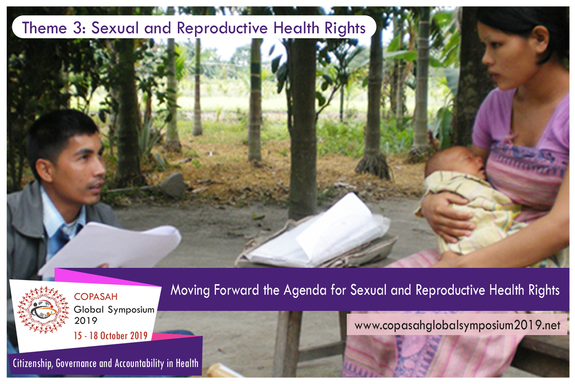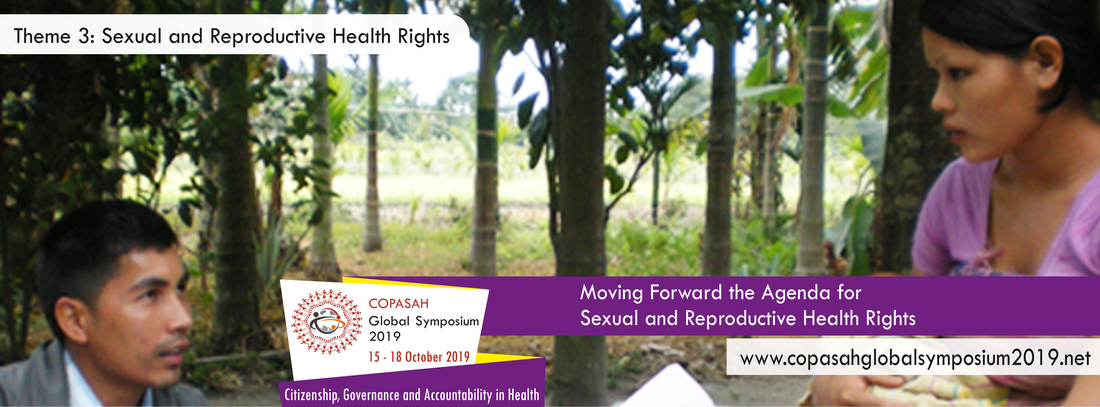
|
|
THEME:3
-: Moving forward the agenda for Sexual and Reproductive Health Rights :-
-: Moving forward the agenda for Sexual and Reproductive Health Rights :-
REPORTS & UPDATES

Sexual and Reproductive health rights are indivisible aspects of human rights, and deeply linked with the fulfillment of all other civil, political, economic, and social rights.
Global and national development agendas have over the past two decades, including as part of the Millennium Development Goals and thereafter the Sustainable Development Goals, included some focus on reproductive health concerns – particularly with regard to maternal health and family planning, sexual rights remain largely invisible. However, the goals and agendas, even in the context of reproductive health rights have been limited, fragmented, and overtly focused on narrow targets, with grave implications for women's autonomy, their access to determinants of reproductive health rights, access to quality, affordable health care free from coercion. This coupled with the larger shifts in the political economy of health, including downsizing of investing in and provisioning of public health services and the move towards privatisation, has especially impacted girls, women and those who live in the margins. In this context, the increasing evidences of violations of sexual and reproductive health rights by non-state actors necessitate urgent attention. Social action for accountability towards sexual and reproductive health rights is gaining momentum; however, it continues to be challenged by marginalisation and repercussions on the basis of gender, caste, disability, and sexuality. Even as these challenges abound, communities, people's organizations and social movements have been addressing a range of issues related to sexual and
Global and national development agendas have over the past two decades, including as part of the Millennium Development Goals and thereafter the Sustainable Development Goals, included some focus on reproductive health concerns – particularly with regard to maternal health and family planning, sexual rights remain largely invisible. However, the goals and agendas, even in the context of reproductive health rights have been limited, fragmented, and overtly focused on narrow targets, with grave implications for women's autonomy, their access to determinants of reproductive health rights, access to quality, affordable health care free from coercion. This coupled with the larger shifts in the political economy of health, including downsizing of investing in and provisioning of public health services and the move towards privatisation, has especially impacted girls, women and those who live in the margins. In this context, the increasing evidences of violations of sexual and reproductive health rights by non-state actors necessitate urgent attention. Social action for accountability towards sexual and reproductive health rights is gaining momentum; however, it continues to be challenged by marginalisation and repercussions on the basis of gender, caste, disability, and sexuality. Even as these challenges abound, communities, people's organizations and social movements have been addressing a range of issues related to sexual and
The symposium will interrogate the appropriateness of global solutions towards the fulfillment of sexual and reproductive health rights, attempting to highlight dissonances between these and local realities. Moving away from a top-down, efficiency driven model of accountability, the symposium will showcase community-led approaches to social accountability and action, including social movements that negotiate the politics of sexual and reproductive health rights and focus on enhancing the autonomy and capabilities of girls, women and other marginalised within communities.
Sub-Themes
Sub-Themes
- Dissonances between top-down policy making and women's realities
- Emerging forms of rights violations within reproductive health programs
- Models of organizing to attain and demand accountability for sexual and reproductive health rights, focusing on the needs of all women (single, married, disabled, marginalized as well as from sexual minority) from state and non-state actors.
- Recognizing and integrating women's traditional knowledge and healing systems.

